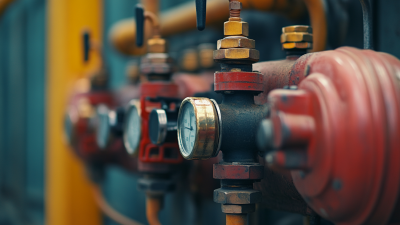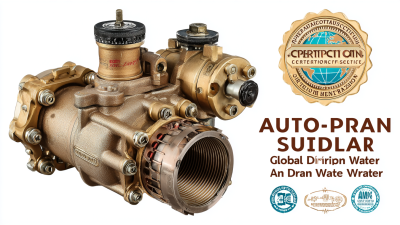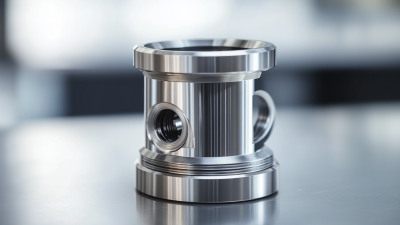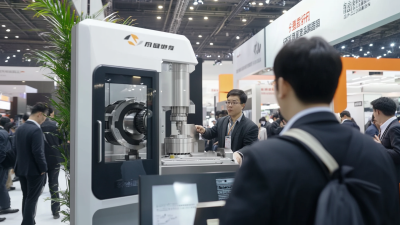
- sales@bjbod.com
- Mon - Sat at 7:00AM to 9:00PM

When it comes to powering various industrial applications, selecting the right equipment is crucial for efficiency and performance. Among the numerous options available, the Gas Air Compressor stands out as a versatile solution for a wide range of tasks, from powering pneumatic tools to fueling large machinery. However, with an array of alternatives on the market, making an informed choice can be daunting.

In this ultimate guide, we will explore the different types of Gas Air Compressors, their unique benefits, and how they compare to other options. By understanding the various features and capabilities, you'll be better equipped to identify the ideal Gas Air Compressor for your specific industrial needs, ensuring optimal performance and cost-effectiveness in your operations.
When it comes to industrial applications, understanding the basics of gas air compressors is essential for making informed decisions. Gas air compressors are utilized in various sectors due to their ability to provide high pressure and consistent airflow. They operate by converting gas energy into mechanical energy, making them suitable for heavy-duty jobs such as powering pneumatic tools, running manufacturing machinery, and facilitating processes in construction sites. Familiarity with different types of gas compressors, including those powered by natural gas, propane, and other fuels, is crucial for any industrial operation.

The global air compressor market is witnessing significant growth, with a projected size of USD 8,221.1 million by 2033, driven by a CAGR of 6.8%. This upward trend is propelled by increasing industrialization and the rising demand for portable and efficient air tools. A thorough understanding of gas air compressors, including their advantages, applications, and maintenance needs, will enable businesses to optimize their operations and ensure equipment longevity.
As industry needs evolve, staying informed about market developments and technological advancements is vital for making the best choices in gas air compressor selection.
When selecting the right gas air compressor for your industrial needs, there are several key factors to consider to ensure optimal performance and efficiency. First and foremost, it’s essential to assess the power requirements of your applications. Different tasks may require varying pressures and volumes of compressed air, so understanding the specific needs of your machinery or tools is crucial. Look for models that can provide the necessary CFM (cubic feet per minute) and PSI (pounds per square inch) ratings to meet these demands without underperforming.
Another critical factor is the compressor’s portability and size. In many industrial environments, mobility can significantly enhance productivity, especially when tasks are spread across different locations. Consider whether a stationary unit or a portable compressor would better suit your operation. Additionally, evaluate the compressor's fuel efficiency and maintenance requirements, as these can affect long-term operational costs and downtime. By carefully considering these aspects, you can select a gas air compressor that not only meets your immediate requirements but also serves your business well over time.
When selecting a gas air compressor for industrial applications, comparing different types based on efficiency is crucial. Industrial gas air compressors come in a variety of forms, including rotary screw, reciprocating, and diaphragm compressors. According to a report by Compressed Air and Gas Institute, rotary screw compressors typically operate at 85%-90% efficiency, making them highly suitable for continuous, heavy-duty industrial tasks. Their ability to deliver a constant air supply while minimizing energy consumption is a significant advantage for businesses looking to optimize operational costs.

Conversely, reciprocating compressors, while less efficient at around 70%-80%, are favored for their versatility and ability to handle varying pressure needs. A study by the United States Department of Energy indicates that these compressors are ideal for applications requiring high pressure, such as in automotive repair and construction. Additionally, diaphragm compressors, with efficiencies varying widely depending on design and application, are excellent for chemical and pharmaceutical industries because they minimize contamination risk and provide consistent air quality. By understanding the strengths and efficiency ratings of these compressor types, industries can make informed decisions that align with their specific operational needs.
When it comes to maintaining your gas air compressor, understanding the factors that contribute to its lifespan is crucial. Regular maintenance not only enhances performance but also prevents costly breakdowns. One essential tip is to perform routine inspections, checking for any signs of wear and tear. Pay close attention to the air filter; a clean filter ensures optimal airflow and prevents the machine from overworking, which can lead to premature failure.
Another important maintenance tip is to maintain proper oil levels and replace the oil according to the manufacturer's recommendations. Clean oil keeps the compressor running smoothly and reduces friction, which can significantly extend its lifespan. Additionally, consider the environment in which your compressor operates. High temperatures and dust can accelerate wear, so ensure the compressor is placed in a clean, well-ventilated area to mitigate these effects.
Also, understanding the operational habits that might shorten the life of your compressor is vital. Continuous operation without breaks can lead to overheating. Incorporate scheduled downtime into usage, allowing the compressor to cool down. This simple adjustment can enhance the unit’s durability, ensuring it serves you well for years to come.
| Feature | Description | Maintenance Tip |
|---|---|---|
| Power Source | Typically runs on gasoline, providing high mobility. | Regularly check fuel levels and use recommended fuel types. |
| Tank Size | Larger tanks offer longer operation without refueling. | Inspect tank for rust and leaks monthly. |
| Cubic Feet per Minute (CFM) | Indicates the air delivery capacity of the compressor. | Keep the intake filters clean to maintain optimal airflow. |
| Noise Level | Measured in decibels (dB); quieter models are preferable. | Use noise reduction mats or enclosures if necessary. |
| Portability | Wheeled models are easier to transport on job sites. | Always check wheel and axle condition before moving. |
When considering gas air compressors for industrial applications, many misconceptions can cloud judgment and lead to poor decisions. One prevalent myth is that gasoline-powered compressors are less efficient than their electric counterparts. In reality, gas air compressors are often preferred in remote locations where electrical supply is limited, allowing for greater operational flexibility. Additionally, advancements in technology have led to modern gas compressors achieving performance levels that can rival those of electric units, making them a viable option for various industrial tasks.
Another common misconception is that gas compressors require significantly more maintenance and will always incur higher operating costs. While it is true that they may need more routine checks, the overall long-term costs can be quite competitive when accounting for efficiency improvements and reliability. Furthermore, industry standards such as JIP 33 are shaping the landscape for air compressors, pushing manufacturers toward more robust designs that can enhance both safety and efficiency in the oil and gas sector. As these developments unfold, it’s crucial to stay informed and base decisions on the latest technological advancements rather than outdated notions.





